Organizers
The Harms and Risks of AI in the Military workshop is organized by volunteers from different backgrounds. These are the organizers (in random order):

Riley Simmons-Edler
He/Him
Harvard Medical School, Harvard Kempner Institute
Riley Simmons-Edler is a postdoc in the lab of Prof. Kanaka Rajan at Harvard Medical School and Harvard's Kempner Institute for Artificial and Natural Intelligence. Since receiving his PhD from Princeton in computer science, he has worked on topics concerning the societal risks that military AI create and how to mitigate them as well as neuro-inspired reinforcement learning algorithms.
Riley_Simmons-Edler@hms.harvard.edu Website
Gisela Luján Andrade
She/Her
Perú por el Desarme
Gisela Luján Andrade is a political advocacy consultant with over 15 years of experience in humanitarian disarmament, human rights, and political communication. Her expertise encompasses analysis, advocacy, and research on social movements, AWS and their humanitarian and social impact on civilians. She is the founder of 'Perú por el Desarme', a civil association promoting awareness of the humanitarian risks of autonomous weapons systems and fostering a culture of peace. Gisela has contributed to international and regional processes related to landmines, cluster munitions, nuclear weapons and AWS. She has published on topics related to emerging military technologies, activism, feminist self-care, AWS regulation, and AI governance. Gisela serves as the representative in Peru of SEHLAC (Latin American and Caribbean Human Security Network) and is a member of the global coalition Stop Killer Robots. Gisela holds two master's degrees in political science from the Pontifical Catholic University of Peru and the Panthéon Sorbonne University and has pursued doctoral studies in sociology at the École des Hautes Études en Sciences Sociales (EHESS).
giselalujan.a@gmail.com LinkedIn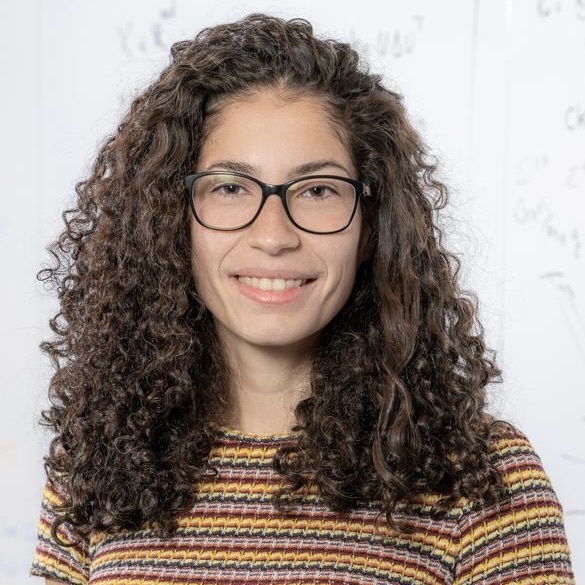
Marwa El-Halabi
She/Her
Samsung SAIT AI Lab Montreal
Marwa El Halabi is a research scientist at the Samsung SAIT AI Lab Montreal, an academic-style research lab situated within Mila - Quebec AI Institute. Before that, she was a PostDoc in the Machine Learning Group at MIT. She completed her PhD in 2018 at the Computer and Communication Sciences department at EPFL. Her main research interest is discrete & continuous optimization problems in Machine learning. In particular, her research has been in submodular optimization, convex optimization, neural networks compression and structured sparsity models. She is also interested in AI for social good applications. She co-organizes a reading group at Mila, focused on the impacts of militarization of AI on society and AI disarmament.
marwa.elhalabi@gmail.com Website Twitter
Hamza Abdelhedi
He/Him
Mila, Université de Montréal
I am a first-year PhD student in Biomedical Engineering at the Faculty of Medicine, Université de Montréal, currently conducting research at MILA (Quebec AI Institute) and the Cognitive and Computational Neuroscience Lab under the supervision of Dr. Karim Jerbi. I just completed my MSc in Computer Science with a specialization in Artificial Intelligence at Université de Montréal. I also hold a Telecommunications Engineering diploma from the Higher School of Communication of Tunis (SUPCOM) and have a background in mathematics from my pre-engineering studies. My research focuses on the intersection of artificial and biological neural networks, with a particular interest in vision, decision-making, and brain disorders.
hamza.abdelhedii@gmail.com Website Twitter LinkedIn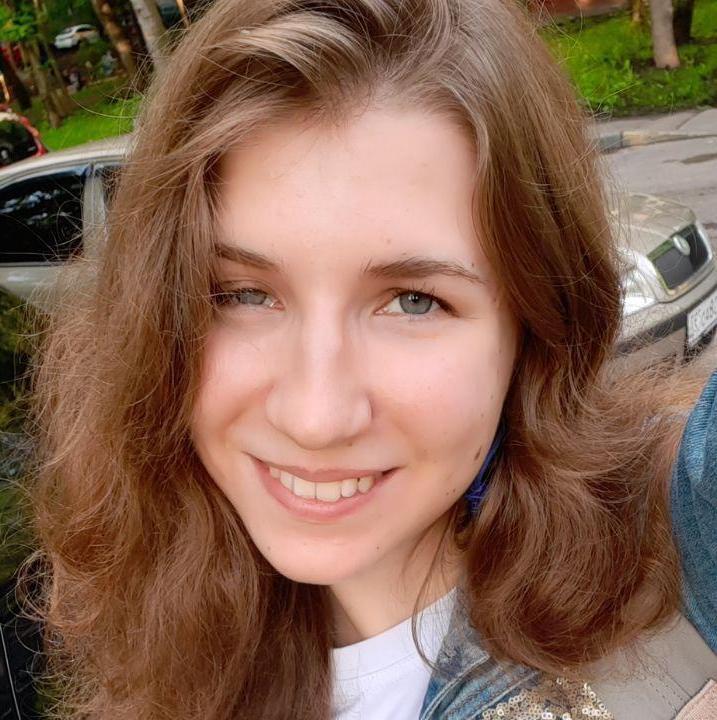
Alexandra Volokhova
She/Her
Mila, Université de Montréal
Alexandra is a PhD student at Mila and Université de Montréal working with Prof. Yoshua Bengio. Her research is focused on generative models for 3D structures in application to drug discovery and material design. Alexandra co-organized New In ML workshop at Neurips 2022, Mila GFlowNet Workshop and was the lead organizer for AI Helps Ukraine Charity Conference. At Mila, Alexandra co-organizes various community meetups and workshops. She leads a local reading group focused on the impacts of militarization of AI on society and AI disarmament.
alexandra.volokhova@mila.quebec Website Twitter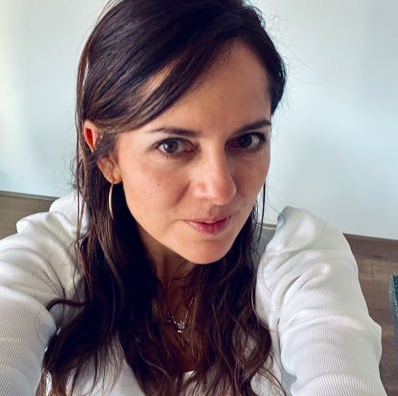
Wanda Muñoz
She/Her
Member of Feminist AI Research Network
Wanda Muñoz is an international consultant with more than 20 years of experience on humanitarian disarmament and a member of the Latin American Hub of the Feminist Artificial Intelligence Research Network. She has worked with international NGO and United Nations organizations in Latin America, Africa, Europe and Southeast Asia. She has worked and published on the ethical, legal and humanitarian risks of autonomous weapons systems for UNESCO, MILA, the ICRC and others. As an independent expert appointed by the Ministry of Foreign Affairs of Mexico, she contributed her experience on policies and programs on gender equality, diversity and human rights to the Global Alliance on Artificial Intelligence. She is a member of UNESCO's Women for Ethics in AI Network and has co-organised multiple regional and international conferences, workshops and panels with UNESCO, UNFPA, UNOPS and others across the globe on different aspects of AI, humanitarian disarmament and assistance to victims of war.
desarme@wandamunoz.com Website
Ryan Badman
He/Him
Harvard Medical School, Harvard Kempner Institute
Ryan Badman is a postdoctoral researcher in Professor Kanaka Rajan's lab at Harvard Medical School and the Harvard Kempner Institute. He holds a physics PhD from Cornell University with a focus on nanotechnology. For his postdoctoral work, he has concentrated on research at the boundary of neuroscience and artificial intelligence, including social cognitive science, reinforcement learning, graph neural networks, and biologically-inspired recurrent neural networks. He also has published work on the risks for academia and society from the increasing militarization of AI.
ryan.badman113@gmail.com Website Twitter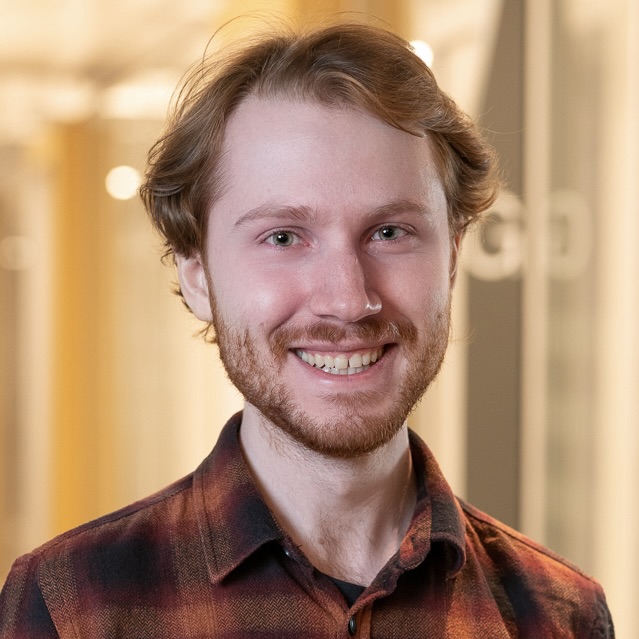
Cristian Dragos Manta
He/Him
Mila, Université de Montréal
Cristian is a PhD student at Mila and Université de Montréal supervised by Yoshua Bengio and Dhanya Sridhar. His research is concerned with incorporating good inductive biases into causal discovery algorithms to improve their applicability to scientific discovery. He co-organized an event to stimulate discussions about the social impacts of AI research within the Mila community and to foster new collaborations on responsible AI projects. He also co-organizes a reading group at Mila, which is focused on the impacts of militarization of AI on society and AI disarmament.
cristian-dragos.manta@mila.quebec LinkedInAdvisory Committee Members
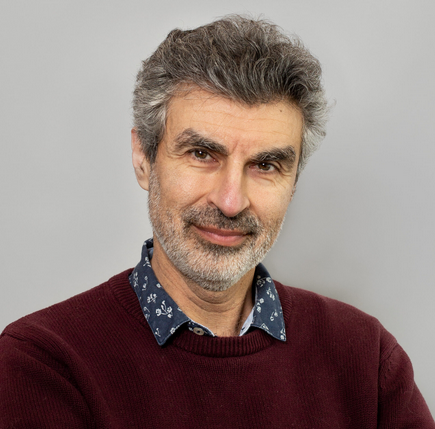
Yoshua Bengio
He/Him
Mila, Université de Montréal, CIFAR, IVADO
Yoshua Bengio is Full Professor at Université de Montréal, and the Founder and Scientific Director of Mila - Quebec AI Institute. He co-directs the CIFAR Learning in Machines & Brains program as Senior Fellow and acts as Scientific Director of IVADO. He received a Turing Award for his work in deep learning and is the computer scientist with the highest h-index. He is a Fellow of both the Royal Society of London and Canada, Knight of the Legion of Honor of France, Officer of the Order of Canada, Member of the UN's Scientific Advisory Board for Independent Advice on Breakthroughs in Science and Technology since 2023 and a Canada CIFAR AI Chair. He chairs the International Scientific Report on the Safety of Advanced AI and co-organized numerous workshops at NeurIPS and other ML conferences.
Website
Gauthier Gidel
He/Him
Mila, Université de Montréal, CIFAR
Gauthier Gidel is a Canada CIFAR AI Chair, a core member of Mila, and an assistant professor at the Department of Computer Science and Operations Research (DIRO) at Université de Montréal. His research focuses on generative modelling and multi-objective learning, such as alignment and adversarial robustness. He's well known for his work on variational inequality for machine learning; including theoretical analyses of GANs and introducing the extragradient method to the deep learning community. Gauthier co-organized a popular series of workshops on smooth games at NeurIPS and co-created and co-organized the first three iterations of the blog post track at ICLR.
Website